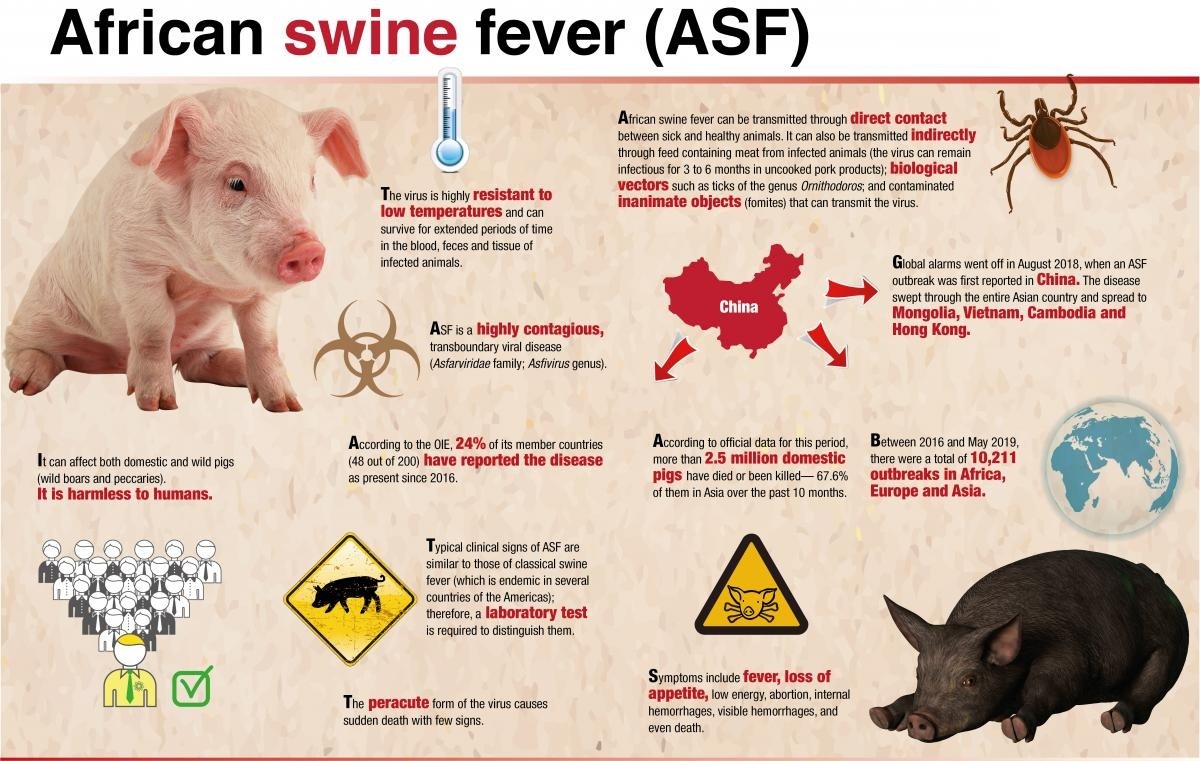African Swine Fever in Assam
Why in News
The Centre has advised the Assam state government to go for culling of pigs affected by the African Swine Fever (ASF).
Key Points
- It has been advised to divide the affected areas into zones and go for culling accordingly.
- The disease was first reported in November-December, 2019 from the areas of China bordering Arunachal Pradesh.
- A few organised piggeries in Assam have been affected and the possible carrier could be humans.
- However, there is no confirmation on humans being the carrier of the virus.
- Earlier in April, there were reported deaths of pigs due to the Classical Swine Fever (CSF).
- ASF and CSF are different from Swine Flu (H1N1) and do not affect humans.
- CSF can be prevented by proper vaccination but there is no vaccination for ASF. Culling of the affected pigs is the only option.
African Swine Fever
- It is a highly contagious and fatal animal disease that infects and leads to an acute form of hemorrhagic fever in domestic and wild pigs.
- It was first detected in Africa in the 1920s.
- The mortality is close to 100% and since the fever has no cure, the only way to stop its spread is by culling the animals.
- ASF is not a threat to human beings since it only spreads from animals to other animals.
- ASF is a disease listed in the World Organisation for Animal Health (OIE) Terrestrial Animal Health Code and thus, reported to the OIE.
World Organisation for Animal Health
- OIE is an intergovernmental organisation responsible for improving animal health worldwide.
- In 2018, it had a total of 182 Member Countries. India is one of the member countries.
- OIE standards are recognised by the World Trade Organization as reference international sanitary rules.
- It is headquartered in Paris, France.
